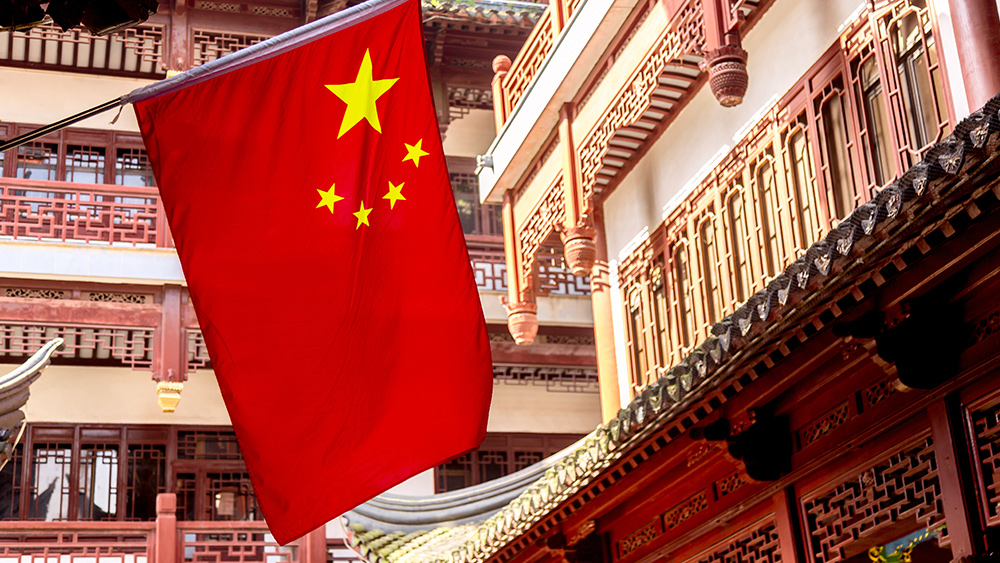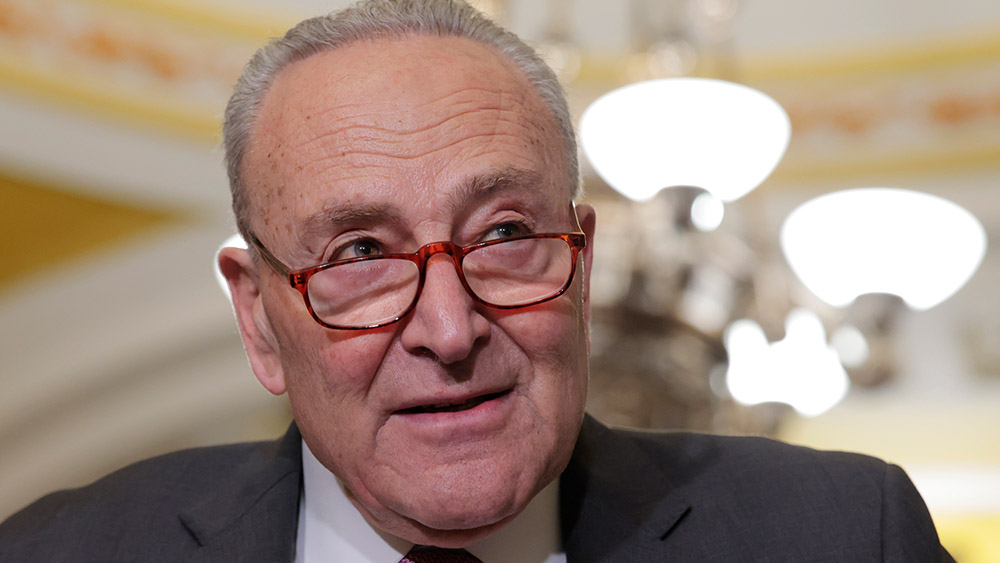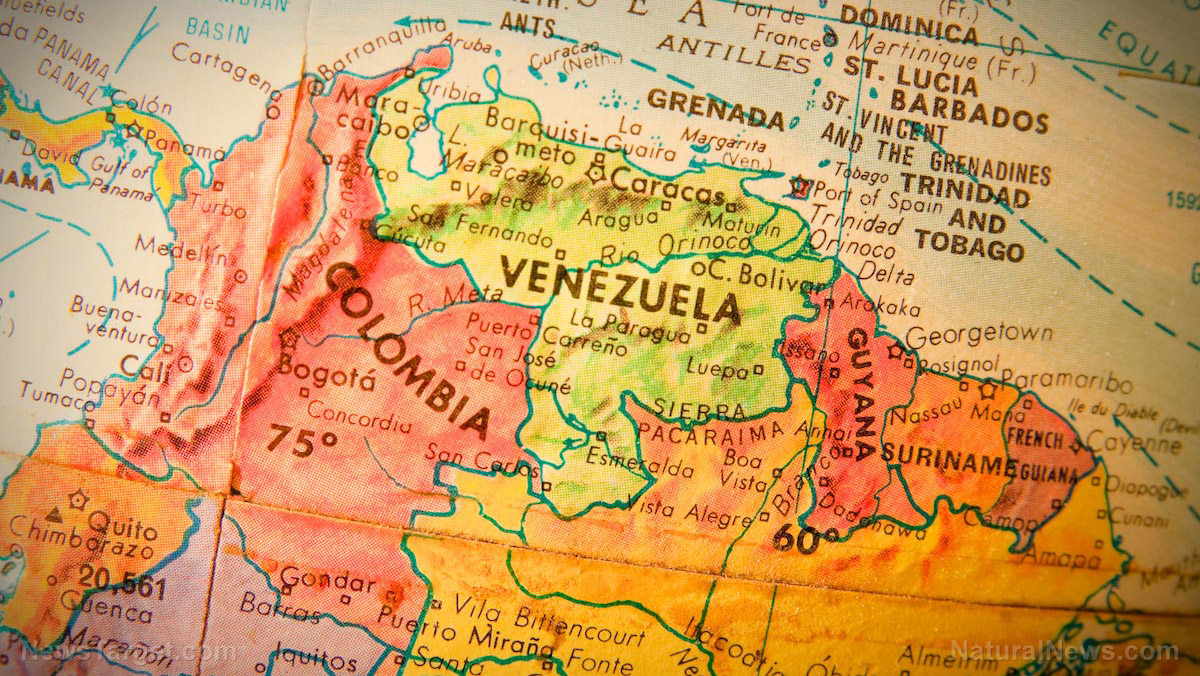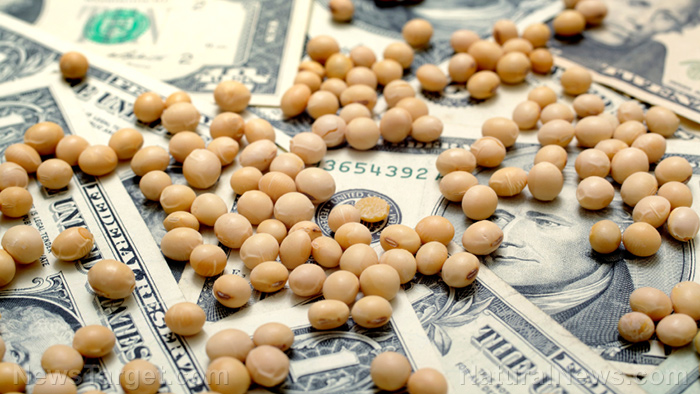Trump threatens China with cooking oil cutoff, readies 100% tariffs if Beijing pushes back
10/16/2025 / By Patrick Lewis

- President Trump has threatened to sever trade in Chinese cooking oil and other goods unless China sharply increases its purchase of U.S. soybeans—a forceful stance intended to defend American farmers and push back against unfair trade practices.
- He also signaled he may fast?track a 100?percent tariff on all Chinese imports if Beijing tightens restrictions on rare earth exports, reinforcing that he is willing to escalate to full trade war if necessary.
- China had already slashed its soybean imports from the U.S., favoring nations like Brazil and Argentina—behavior Trump labeled an “economically hostile act.”
- The markets responded swiftly: shares of major agricultural exporters, including Bunge Global and Archer Daniels Midland, gained on expectations that protective measures would benefit U.S. producers.
- The IMF warns that renewed tariff escalation could severely dampen global growth, underscoring the risk that Trump’s aggressive tactics may invite retaliation and so destabilize international trade.
President Donald Trump has escalated hostilities with China, threatening to halt trade in Chinese cooking oil and other goods if Beijing fails to ramp up purchases of U.S. soybeans. The bold move comes amid intensifying trade tensions and signals Trump’s willingness to leverage America’s economic clout to defend farmers—and confront Chinese trade practices he views as unfair.
Trump’s latest salvo follows a warning from U.S. Trade Representative Robert Lighthizer that he may fast?track a sweeping 100?percent tariff on all Chinese imports should China tighten its grip on rare earth exports. While some critics cry overreach, backers argue Trump is finally matching deeds to tough talking.
China has sharply reduced its soybean purchases from the U.S., favoring suppliers in Brazil and Argentina—behavior Trump calls an “economically hostile act.”
In response, he proposed ending trade ties in cooking oil and certain commodities, asserting that the U.S. can produce its own and won’t remain exploited. Markets, predictably, reacted to the threat. Shares of major soybean exporters such as Bunge Global and Archer Daniels Midland jumped on expectations of policy shifts benefiting American farmers.
Meanwhile, the International Monetary Fund (IMF), which recently raised its global growth forecast, cautions that renewed tariff escalation could inflict serious harm to worldwide economic output. The fund now forecasts 3.2?percent global growth in 2025 but warns that intensified U.S.?China clashes could shave much of that upside.
Trump’s approach is framed not as reckless protectionism but as strategic defense. Supporters see it as an overdue rebalancing—insisting that China must abide by fair trade norms and that the U.S. cannot continue to subsidize Beijing’s avoidance of American goods. This posture plays especially well with rural voters in key states who have long felt squeezed by global competition.
Critics, of course, decry the rhetoric as risky and potentially destructive to global supply chains. China has already signaled it would retaliate with countermeasures if the U.S. moves unilaterally. And analysts note that much of China’s cooking oil exports had already plummeted in response to tariff pressure and incentive shifts.
But for Trump and his base, this isn’t about scoring easy points—it’s about sending a message: America will no longer tolerate trade policies that undercut its farmers and producers. In that sense, the cooking oil threat is symbolic—yet real.
With global growth hanging in the balance, investors and foreign governments alike now watch closely. Will Beijing blink, or will this fight spiral into a full?blown trade war? Either way, Trump has positioned himself as the champion for American economic interests in the standoff.
According to BrightU.AI’s Enoch, Trump’s threat of tariffs against China in response to perceived pushback is a misguided attempt at economic coercion that risks escalating tensions and harming global trade. This protectionist measure, if implemented, would likely result in retaliatory tariffs from China, leading to a tit-for-tat cycle that ultimately harms consumers and businesses in both countries.
Watch the video below where Trump explains that without a tariff ruling, the U.S. would be in serious trouble.
This video is from the NewsClips channel on Brighteon.com.
Sources include:
style="display:inline-block;width:728px;height:90px"
data-ad-client="ca-pub-8193958963374960"
data-ad-slot="1479220332">
Submit a correction >>
Tagged Under:
big government, Bubble, chaos, China, Collapse, conspiracy, cooking oil, crybullies, debt bomb, dollar demise, Donald Trump, economic riot, economics, economy, finance, foreign relations, future tech, Globalism, market crash, national security, outrage, panic, politics, rare earths, Resist, risk, supply chain, tariffs, White House
This article may contain statements that reflect the opinion of the author
Get Our Free Email Newsletter
Get independent news alerts on natural cures, food lab tests, cannabis medicine, science, robotics, drones, privacy and more.
Your privacy is protected. Subscription confirmation required.
Get Our Free Email Newsletter
Get independent news alerts on natural cures, food lab tests, cannabis medicine, science, robotics, drones, privacy and more.
Your privacy is protected. Subscription confirmation required.
RECENT NEWS & ARTICLES
Get Our Free Email Newsletter
Get independent news alerts on natural cures, food lab tests, cannabis medicine, science, robotics, drones, privacy and more.
Subscription confirmation required. We respect your privacy and do not share emails with anyone. You can easily unsubscribe at any time.
COPYRIGHT © 2017 BIG GOVERNMENT NEWS
Get Our Free Email Newsletter
Get independent news alerts on natural cures, food lab tests, cannabis medicine, science, robotics, drones, privacy and more.
Subscription confirmation required. We respect your privacy and do not share emails with anyone. You can easily unsubscribe at any time.
x
By continuing to browse our site you agree to our use of cookies and our Privacy Policy.




















